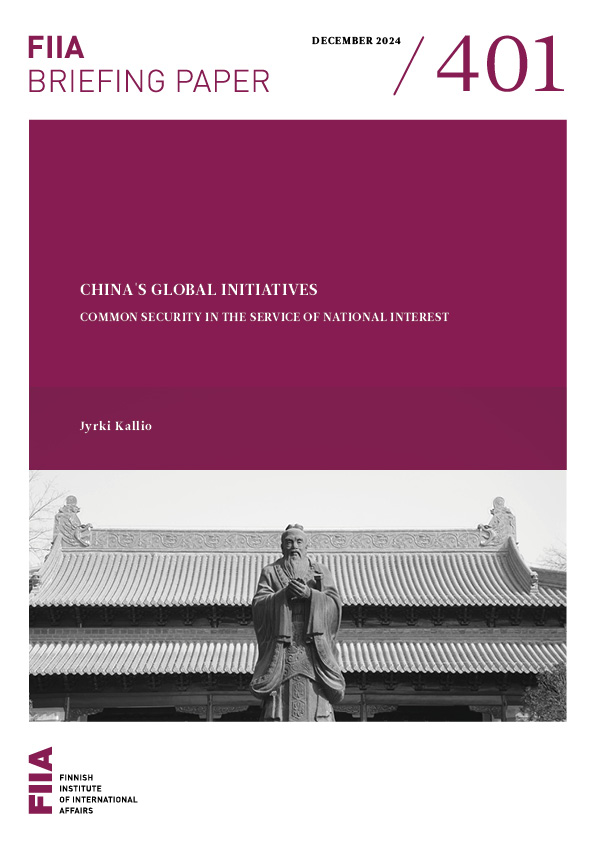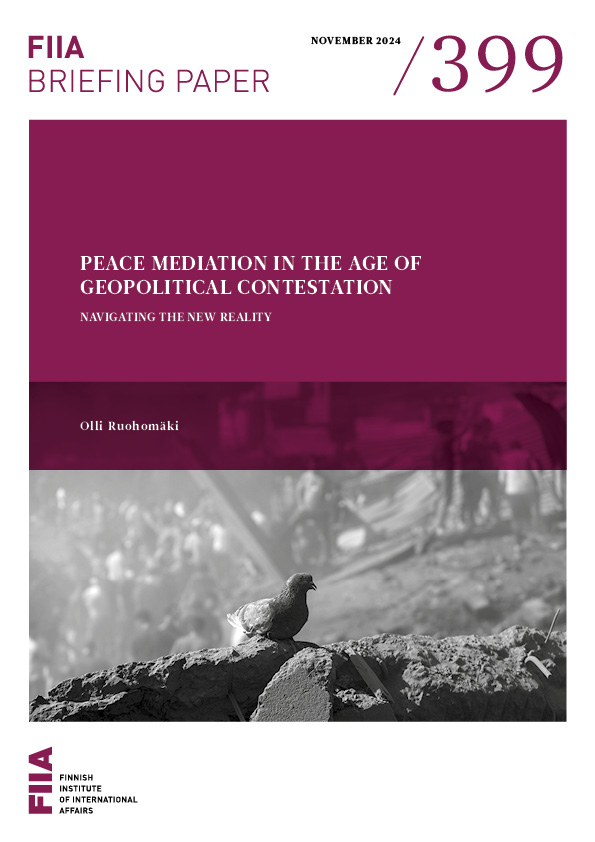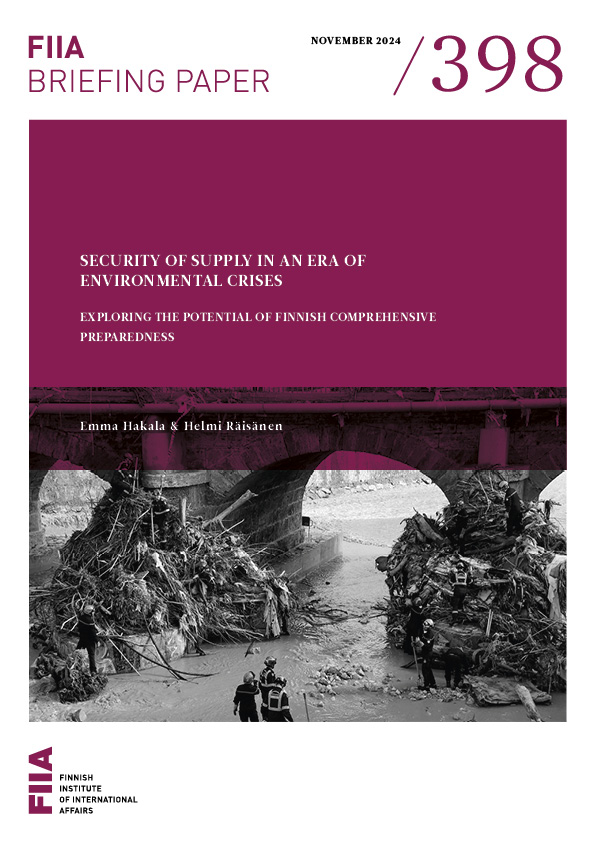The tornado-like debate in Sweden about the country’s armed forces and defence policy has led to the disintegration of the very cornerstones of Swedish defence policy. Finland should prepare for the possibility of Sweden making rapid changes to its security policy.
During the past three months, a frantic debate has been raging about the Swedish military’s capability to defend the country. The discussion was initiated by the commander of the Swedish armed forces, Sverker Göranson, who stated in an interview with the Svenska Dagbladet newspaper in December 2012 that Sweden could independently defend itself against a military attack for no longer than a week or so. To survive beyond that, the country would need outside help.
Since Göranson’s comment, other experts have made even more pessimistic estimates. According to an analysis published by the Royal Swedish Academy of War Sciences, the mechanized detachments would only be operational for a couple days, due to the lack of logistical support.
Despite being based on actual war games, Göranson’s statement has been criticized as an attempt to convince Swedish politicians of the military’s need for more money. The Swedish government, and especially Defence Minister Karin Enström, have sought to give assurances that the capabilities of the armed forces as well as the defence budget are at an adequate level.
One outcome of the debate is that Swedish politicians and citizens alike are changing their views about the two cornerstones of Swedish defence policy.
Firstly, the Swedes have had to come to terms with the fact that Sweden no longer has a credible territorial defence capability. This has come as a shock to many who have believed the official rhetoric about how the transformation from a large reserve army to a very small professional “techno” army was carried out in order to make the military better suited to the needs of national defence. Sweden’s defence budget is double the size of Finland’s, yet Sweden’s defence capability is a mere fraction in comparison.
Secondly, the Swedes reluctantly had to accept that during a military crisis, they can’t expect to receive help from others. During the Cold War, Sweden could more realistically assume that it would be supported, since NATO and the United States were committed to aiding the country, even though Sweden was not a NATO member.
Due to the military reforms, the need for outside assistance is now greater than before. Sweden itself has given a declaration of solidarity, stating that it would not remain passive if another Nordic country or EU country were attacked. This has raised hopes of reciprocal solidarity towards Sweden.
During the past few months, both of these Swedish illusions have begun to crumble. The Norwegian Minister of Defence, Anne-Grete Strøm-Erichsen, announced in late February that Norway had neither the ability nor the intention of assisting Sweden, should Sweden face a military attack. And in January, the Secretary General of NATO, Anders Fogh Rasmussen, underlined that the security guarantees and defence planning provided by NATO only apply to member states.
Sweden has also woken up to the fact that the mutual assistance clause included in the Treaty of Lisbon is meaningless without concrete acts of preparation – which are not to be expected. Added to this, the former director of the Swedish National Defence College, Karlis Neretnieks, has said that even if help was offered to Sweden, it does not have the capability to receive it; host nation support capabilities are severely lacking.
In the light of all this, the Swedish people as well as an increasing number of the country’s political leaders have had to admit that Sweden’s declaration of solidarity is not anchored in reality. It is a political flight of fancy, upon which the Swedish military has had to build its plans.
The disintegration of these cornerstones of Sweden’s defence policy is also apparent in the fact that more Swedes now see NATO membership as a realistic option. According to an opinion poll conducted in January 2013, 29 per cent of Swedes were in favour of, and 32 per cent against, joining NATO. More than a third were undecided. Only two years earlier, a full 50 per cent opposed NATO membership.
The debate of recent months has probably continued to impact Swedish public opinion, making it even more sympathetic towards defence co-operation. Should the situation arise, Swedish politicians can now justify a rapid change of heart with regard to NATO. However, as of yet, the Social Democrats, who are in a position to tip the scales towards NATO membership, still favour a “third way” in the form of Nordic defence co-operation.
It is too early to draw firm conclusions about the changes described above, but Finland has to prepare for the possibility that Sweden may make rapid changes to its defence and security policies. The next parliamentary elections in Sweden will be held in September 2014, and depending on the eventual government coalition, the country may apply for NATO membership in 2015 or 2016. Due to the change that has already taken place in Sweden, a debate about NATO membership must also be initiated prior to the next Finnish parliamentary elections in the spring of 2015.
The Swedish debate on defence also serves as a cautionary example of both how difficult and costly it is to rely on a volunteer military as a basis for national defence and how political ideology can dangerously dismantle a country’s capability to defend itself. At the core of the Swedish debate is not a return to the abandoned system, but rather a question of what – after the dust settles – Sweden’s security policy should be based on and how its armed forces should be structured.








